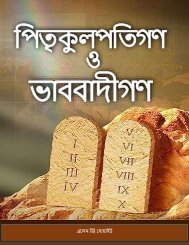Finishing the Race
Of all the games instituted among the Greeks and the Romans, the races were the most ancient and the most highly esteemed … The contests were governed by strict regulations, from which there was no appeal. Those who desired their names entered as competitors for the prize had first to undergo a severe preparatory training. Harmful indulgence of appetite, or any other gratification that would lower mental or physical vigour, was strictly forbidden. For one to have any hope of success in these trials of strength and speed, the muscles must be strong and supple, and the nerves well under control. Every movement must be certain, every step swift and unswerving; the physical powers must reach the highest mark.
Of all the games instituted among the Greeks and the Romans, the races were the most ancient and the most highly esteemed … The contests were governed by strict regulations, from which there was no appeal. Those who desired their names entered as competitors for the prize had first to undergo a severe preparatory training. Harmful indulgence of appetite, or any other gratification that would lower mental or physical vigour, was strictly forbidden. For one to have any hope of success in these trials of strength and speed, the muscles must be strong and supple, and the nerves well under control. Every movement must be certain, every step swift and unswerving; the physical powers must reach the highest mark.
Create successful ePaper yourself
Turn your PDF publications into a flip-book with our unique Google optimized e-Paper software.
wondered after <strong>the</strong> beast." Paul states plainly that <strong>the</strong> "man of sin" will continue until <strong>the</strong><br />
second advent. 2 Thessalonians 2:3-8. To <strong>the</strong> very close of time he will carry forward <strong>the</strong><br />
work of deception. And <strong>the</strong> revelator declares, also referring to <strong>the</strong> papacy: "All that dwell<br />
upon <strong>the</strong> earth shall worship him, whose names are not written in <strong>the</strong> book of life."<br />
Revelation 13:8. In both <strong>the</strong> Old and <strong>the</strong> New World, <strong>the</strong> papacy will receive homage in <strong>the</strong><br />
honour paid to <strong>the</strong> Sunday institution, that rests solely upon <strong>the</strong> authority of <strong>the</strong> Roman<br />
Church.<br />
Since <strong>the</strong> middle of <strong>the</strong> nineteenth century, students of prophecy in <strong>the</strong> United States<br />
have presented this testimony to <strong>the</strong> world. In <strong>the</strong> events now taking place is seen a rapid<br />
advance toward <strong>the</strong> fulfillment of <strong>the</strong> prediction. With Protestant teachers <strong>the</strong>re is <strong>the</strong> same<br />
claim of divine authority for Sunday-keeping, and <strong>the</strong> same lack of Scriptural evidence, as<br />
with <strong>the</strong> papal leaders who fabricated miracles to supply <strong>the</strong> place of a command from God.<br />
The assertion that God's judgments are visited upon men for <strong>the</strong>ir violation of <strong>the</strong> Sundaysabbath,<br />
will be repeated; already it is beginning to be urged. And a movement to enforce<br />
Sunday observance is fast gaining ground.<br />
Marvellous in her shrewdness and cunning is <strong>the</strong> Roman Church. She can read what is to<br />
be. She bides her time, seeing that <strong>the</strong> Protestant churches are paying her homage in <strong>the</strong>ir<br />
acceptance of <strong>the</strong> false sabbath and that <strong>the</strong>y are preparing to enforce it by <strong>the</strong> very means<br />
which she herself employed in bygone days. Those who reject <strong>the</strong> light of truth will yet seek<br />
<strong>the</strong> aid of this self-styled infallible power to exalt an institution that originated with her.<br />
How readily she will come to <strong>the</strong> help of Protestants in this work it is not difficult to<br />
conjecture. Who understands better than <strong>the</strong> papal leaders how to deal with those who are<br />
disobedient to <strong>the</strong> church? The Roman Catholic Church, with all its ramifications<br />
throughout <strong>the</strong> world, forms one vast organisation under <strong>the</strong> control, and designed to serve<br />
<strong>the</strong> interests, of <strong>the</strong> papal see. Its millions of communicants, in every country on <strong>the</strong> globe,<br />
are instructed to hold <strong>the</strong>mselves as bound in allegiance to <strong>the</strong> pope. Whatever <strong>the</strong>ir<br />
nationality or <strong>the</strong>ir government, <strong>the</strong>y are to regard <strong>the</strong> authority of <strong>the</strong> church as above all<br />
o<strong>the</strong>r. Though <strong>the</strong>y may take <strong>the</strong> oath pledging <strong>the</strong>ir loyalty to <strong>the</strong> state, yet back of this lies<br />
<strong>the</strong> vow of obedience to Rome, absolving <strong>the</strong>m from every pledge inimical to her interests.<br />
History testifies of her artful and persistent efforts to insinuate herself into <strong>the</strong> affairs of<br />
nations; and having gained a foothold, to fur<strong>the</strong>r her own aims, even at <strong>the</strong> ruin of princes<br />
and people. In <strong>the</strong> year 1204, Pope Innocent III extracted from Peter II, king of Arragon, <strong>the</strong><br />
following extraordinary oath: "I, Peter, king of Arragonians, profess and promise to be ever<br />
faithful and obedient to my lord, Pope Innocent, to his Catholic successors, and <strong>the</strong> Roman<br />
Church, and faithfully to preserve my kingdom in his obedience, defending <strong>the</strong> Catholic<br />
faith, and persecuting heretical pravity." --John Dowling, The History of Romanism, b. 5,<br />
ch. 6, sec. 55. This is in harmony with <strong>the</strong> claims regarding <strong>the</strong> power of <strong>the</strong> Roman pontiff<br />
"that it is lawful for him to depose emperors" and "that he can absolve subjects from <strong>the</strong>ir<br />
allegiance to unrighteous rulers."--Mosheim, b. 3, cent. 11, pt. 2, ch. 2, sec. 9, note 17.<br />
362


















